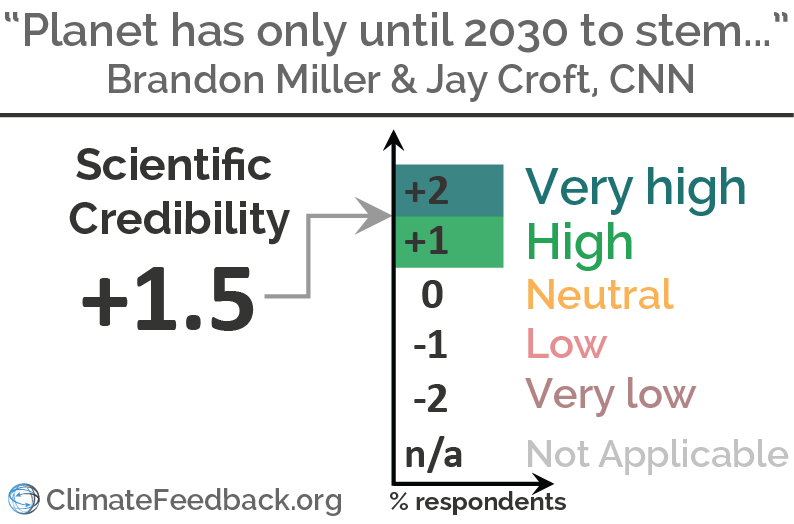- Climate
CNN accurately covers latest IPCC report
Reviewed content

Headline: "Planet has only until 2030 to stem catastrophic climate change, experts warn"
Published in CNN, by Brandon Miller, on 2018-10-08.

Scientists’ Feedback
SUMMARY
This CNN story covered the October release of the IPCC’s “Global Warming of 1.5 °C” report. The report, which was requested by governments during the 2015 Paris Agreement negotiations, details the impacts of 1.5 °C compared to 2 °C and the emissions cuts required to limit warming to either of those levels.
Scientists who reviewed the story found that it conveyed the information in the report without any errors, and included comments by scientists to summarize the report’s implications.
This is part of a series of reviews of 2018’s most popular climate stories on social media.
REVIEWERS’ OVERALL FEEDBACK
These comments are the overall assessment of scientists on the article, they are substantiated by their knowledge in the field and by the content of the analysis in the annotations on the article.

Postdoctoral research fellow, University of Antwerp
Very accurate summary of some key aspects of the IPCC special report on 1.5 °C.

Postdoctoral Researcher, GFZ Helmholtz Centre Potsdam
The article has nothing contentious in it, as it merely restates and paraphrases the content of the IPCC report, with added quotes from scientists and political advocates.
Notes:
[1] See the rating guidelines used for article evaluations.
[2] Each evaluation is independent. Scientists’ comments are all published at the same time.



